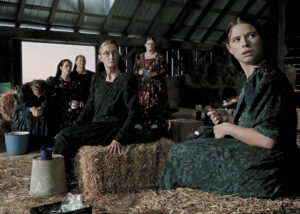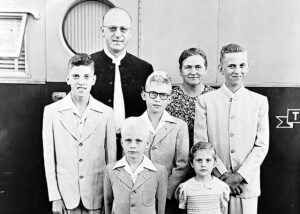At a recent gathering of pastors, one man spoke of “a woman’s right to choose” with respect to pregnancy, then added, “I assume everyone here would agree with that.” In a room of Mennonite pastors, I was not so confident that all would be “pro-choice.”
Around the same time, in a Mennonite adult education setting, a woman spoke of “a society that condones murder,” continuing, “Of course, we have abortion, which is the same thing as murder.” She, too, seemed to assume that everyone present shared her view.
In both cases, I was aware that rarely does the subject of abortion come up, and rarely is it given any kind of open discussion. More likely, as demonstrated in these two examples, I suspect we continue supposing everyone in earshot thinks similarly, rarely risking the effort to invite opinions from, and listen to, those who think differently.
Can we talk about abortion? Abortion is certainly a difficult topic for me, impacted by my commitment to pacifism and a personal history of infertility. Pacifism includes a pledge to avoid harm and protect life. The pain of infertility was deepened by aching for aborted potential lives who could have been cared for by would-be parents. Yet I encourage you, Gentle Reader, to continue in the work of difficult conversations, for in our churches are people who have experiences with abortion: doctors, nurses and social workers, and those who have ended a pregnancy. How does the church provide support, compassion and understanding?
A number of things shape my support for laws that permit women to choose abortion. First, there are the women themselves who have told me their stories of physical risk and emotional illness; of a husband who demanded an abortion; of being young, alone and poor.
Would I really prefer to live in a society that would force these women to carry a pregnancy to term? Would I want to live in a society whose women’s lives are at risk when they do not have access to safe abortions? Is there sufficient evidence that our society values all lives, enough practical commitment that they would support such mothers and their children?
I answer no to these questions. I do not want to go back in time to a society that denies women this choice. It is women who possess the sacred privilege of life-bearing, and that is a blessing. It is also women who are left too often on their own to care for a child, and so it is women who decide. We do well, though, to remember the men who are involved. The men who share the decision with their partners, the men who insist on an abortion, the men who abandon their responsibility.
I am old enough to remember when North American Christian churches had a more measured response to abortion. Religion writer John Longhurst, in an October 6, 2018, Winnipeg Free Press column, traced this shift over the last 50 years. He quoted author Jonathan Dudley, “[W]hat conservative Christians now say is the Bible’s clear teaching on [abortion] was not a widespread interpretation until the late 20th century,” in reference to a 1968 issue of Christianity Today, in which leading evangelical thinkers said the Bible “plainly teaches that life begins at birth.”
These thinkers would have been in line with former U.S. first lady Barbara Bush, whose views were shaped by her daughter Robin’s short life. In a journal entry on abortion, Bush wrote of being with Robin at “the almost religious experience of” her birth and subsequently at her death. Bush “sensed Robin’s soul entering her body at the moment of her birth [her first breath] . . . and she had felt it leave [Robin] at the instant of her death,” wrote Susan Page, Barbara Bush’s biographer, in the March 29 issue of The Atlantic.
Much more can—and should—be said. I pray we can be a community whose difficult conversations take place in a spirit of grace, compassion and mercy.
Melissa Miller (familyties@mymts.net) has a passion for helping people develop healthy, vibrant relationships with God, self and others.
See other columns in Melissa Miller’s series on difficult conversations:
Can we talk about ageism?
Can we talk about suicide?
Can we talk about MAID?
Can we talk about death?
Can we talk politics?
Can we talk?









Leave a Reply
You must be logged in to post a comment.